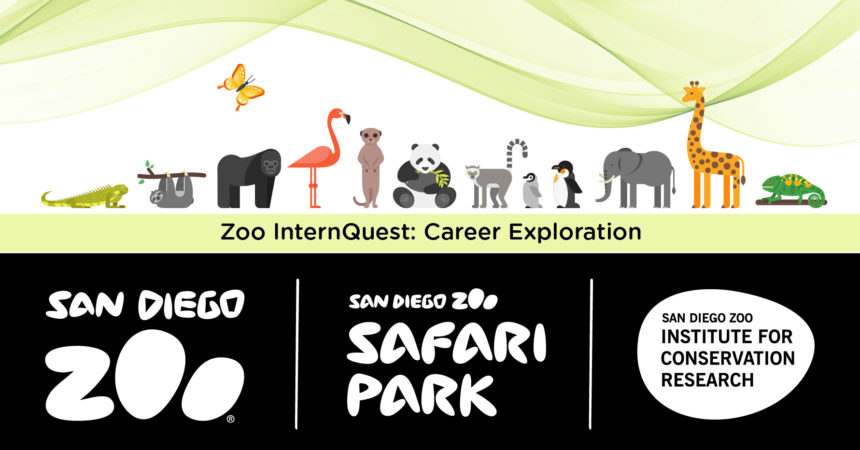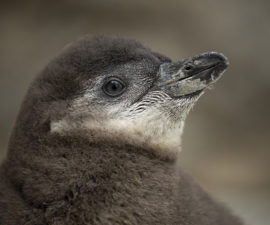Zoo InternQuest is a seven-week career exploration program for San Diego County high school juniors and seniors. Students have the unique opportunity to meet professionals working for the San Diego Zoo, Safari Park, and Institute for Conservation Research, learn about their jobs, and then blog about their experience online. Follow their adventures here on the Zoo’s website!

The San Diego Zoo is a wonderful place for educating everyday people on wildlife from around the world and what can be done to help species on a global level. Inspiring people to take action in conservation issues is something the Zoo excels at. One of the many ways this is accomplished is through the people who work with, train and handle some of the Zoo’s animals, like Ms. Kelly Elkins, Lead Animal Trainer. One program she is heavily involved with is Animals in Action – an experience which allows guests to get a closer look at some of the Zoo’s inhabitants.
While meeting with Ms. Elkins and a team of trainers, we were giving the opportunity to meet a few of the lovely animal ambassadors that call the Zoo home. One of these being Paloma, the two-year-old Linnaeus’s two-toed sloth. Paloma was actually born at the San Diego Zoo, and her parents still live here! Paloma is a rather interesting ambassador, as she was raised by her parents all the while learning how to become an animal ambassador. In the wild, Paloma’s species faces the issue of being illegally taken from their natural habitat. People will find the baby sloths and take them away from their mothers to use for photo opportunities for visiting tourists who are willing to pay to due so. Unfortunately, Linnaeus’s two toed sloths have specific requirements for heat and humidity, and the young sloths do not survive long once taken from the wild. Ms. Elkins hopes that an encounter with Paloma will show people the importance of conserving her species!
After meeting Paloma, we met a lovely cheetah and dog duo. Many people are curious as to why some of the Zoo’s animals are paired with dogs. The reason this is done is because cheetahs can get frightened easily, and having a confident canine companion helps to comfort and reassure the cheetah in new situations. Not all of the Zoo’s cheetahs receive dog friends – some are bonded with other cheetahs and some are kept solitary. Whether a cheetah is kept alone or not is a decision that depends on the animal. If the decision is made to keep a cheetah in a pair, it is introduced to its companion at a young age, so they believe they are littermates. Working with cheetahs can be quite a challenge, as Ms. Elkins says that carnivores’ way of communication can be more difficult to understand. Taking time with the cheetah (and any other animal), and forming a close relationship is what helps make communication a bit more accurate.
The last animal we met was Zari, a Grant’s Zebra. Zari was given the opportunity to choose whether she wanted to participate in the session, and lucky for us, she was willing! All animals are given the opportunity to choose if they want to participate in a show or session. Zari is trained to do quite a few things: she can smile, turn around, let you check her ears, raise her tail, and even wave good bye before she heads back into her exhibit. Although these behaviors are adorable, they have a very important purpose. Each one of those behaviors allows Zoo staff to ensure that Zari is healthy and happy. Her charming smile allows for her teeth to be checked and to make sure there are no dental issues. When Zari turns, it makes it easier for health inspections to be done. The raising of her tail allows for her temperature to be accurately taken and with a minimal amount of stress on her.
Animal training is very important to both the health and conservation of the animals at the Zoo. Whether it be showing and educating people on conserving Linnaeus’s two-toed sloths or keeping zebras in tip top shape, training is vital! Trained species are extra effective ambassadors for their species! Ms. Elkins says that the best moments of her day are bringing out an animal and seeing a spark for conserving them ignited in an audience member’s heart.
Alana Hurd, Real World
Team Week Four, Winter Session 2019


